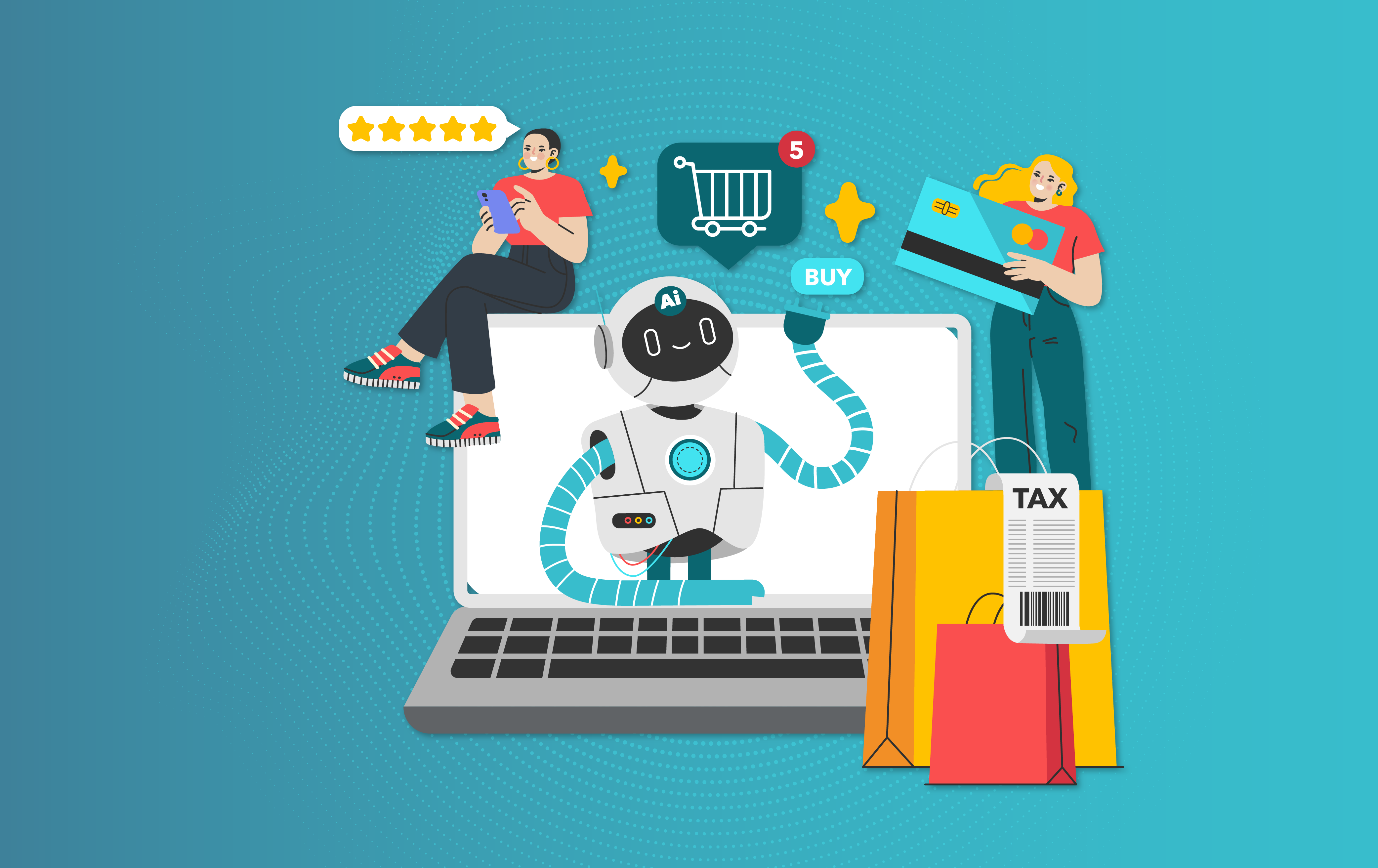With the speed of technological change and the expansion of e-commerce, staying relevant in the retail industry is practically a full-time job. Retailers who struggle to keep up risk losing customers to their competition. In fact, as many as 75% of shoppers say it only takes three bad experiences for them to abandon a brand and look elsewhere.
Don’t get left behind. Take your retail operations to the next level with an AI call center. Let’s see how.
The Growing Impact of AI in the Retail Industry
AI is getting integrated into just about everything. In fact, 86% of retailers use AI or automation in some form. And for good reason: nearly 50% of retailers have already seen cost-savings, up to 43% have experienced increased revenue. What’s more, 44% have improved their productivity.
In retail, customer loyalty relies on exceptional customer experiences. AI helps you do just that. With AI, brands can maximize their customer data and increase customer service. Here are a few examples:
- AI-powered analytics let brands swiftly analyze massive and disparate amounts of data in real time, enabling tailored experiences and faster decision-making.
- With AI call centers, brands can offer fast, 24/7 support.
- AI helps service leaders cut wait times, increase operational efficiency, and automate routine, monotonous tasks.
- AI reduces the likelihood of errors, producing seamless, trustworthy customer experiences.
Ready to join the AI revolution and experience these benefits? Let’s dive into what adding an AI call center to your retail ops looks like.
Tackle retail labor costs and shortages with the right tech. Learn more here.
5 Ways to Implement an AI Call Center in Your Retail Operations
1. Personalize Customer Interactions
AI helps retailers offer personalized experiences. With AI, agents have context about a customer’s purchase history and past interactions. This helps them improve the interaction and suggest next steps based on personal preferences.
How it Works
Meet Mary, a loyal customer of a nationwide furniture retailer. Mary recently bought a coffee table online but believes she’s missing a critical piece to finish constructing the table. So, she initiates a chat on the website. Michael, a call center agent, answers.
Once Mary shares her order number, an AI agent assistant pulls up her purchase history and preferences for Michael. Then, it highlights that Mary has had a few issues with shipping in the past, signaling that she could lose trust in the brand.
Based on this intel, Michael immediately initiates a replacement order with the missing part. And, knowing Mary’s history, he offers a small discount towards her next purchase. Mary leaves feeling valued and supported.
Here, the AI call center tool has helped Michael resolve Mary’s issue quickly and enhanced her experience in seconds.
2. Automate Proactive Service
AI and automation help call center teams anticipate potential problems. Using forecasting analysis, you can set up your AI systems to automate outreach, preventing potential customer frustration or churn.
How it Works
Jake orders a new smartphone. After a few days, he notices a shipping delay, leaving him a little frustrated. Before he can call, he receives an automated text from the retailer’s AI system. The IVA informs him of the delay and offers a 10% discount on his next purchase as an apology. Jake feels acknowledged and is relieved he doesn’t have to take the time to call the company himself. The proactive approach reassured him and transformed a frustrating experience into a positive one.
See how you can use artificial intelligence to enhance your operations.
3. Streamline Inventory Management
AI call center technology integrates with your existing systems, helping streamline operations and inventory management. You can use AI to simplify inventory management, provide accurate information, and offer effective customer service.
How it Works
John, a call center agent at a sports retailer, receives an inquiry from a customer about the availability of a shoe in a particular size. Instead of putting the customer on hold and manually checking the inventory, John uses the store’s AI-powered call center system. The AI is integrated with the inventory management software, allowing it to quickly check stock levels across multiple locations.
The AI system informs John that the shoes aren’t available at his location. But they are in stock at a nearby store. With the click of a button, John arranges for the shoes to be delivered to the customer’s home. Not only is the customer impressed by the speed of service, but AI has also helped John work faster, boosting his productivity.
4. Handle High Call Volumes
AI call center technology helps retailers scale their service without adding additional costs. Using AI virtual assistants and chatbots, retailers can quickly respond to high call volumes and inquiries without additional human labor.
How it Works
It’s the holiday season, and your retail store is swamped with calls about product inquiries, shipping delays, and return policies. Before AI, the situation would be all hands on deck. But this year, the AI call center stepped in to handle the increased volume.
Your virtual assistants manage routine inquiries and automate shipping updates, lowering the number of incoming calls. And, when necessary, they escalate more complex issues to human agents. With an AI call center, you can address each customer inquiry immediately despite the high volume. This means you can maintain high service levels without overwhelming your staff, preserving your reputation and supporting your team.
5. Automate Customer Feedback Collection
How can you improve your service if you’re not listening to your customers? Customer feedback enables positive growth and change. But it takes a lot of time and energy to create an effective feedback loop and organize the feedback in a meaningful way. An AI call center can help.
How it Works
After a successful shopping experience, Mark receives an automated call from the retailer’s AI system asking for feedback about his recent purchase. The AI uses natural language processing to understand his comments. Then, using advanced analytics, the system compiles Mark’s feedback alongside other customers, producing meaningful insights for the call center team to improve performance.
As a result, Mark feels like his feedback is valued and feels more connected to the brand because of the phone call. Plus, the call center team has essential info to make data-driven improvements to their service.
Discover how an AI-based call center can boost your CSAT and employee engagement.
3 Tips for Training Your Employees to Use an AI Call Center
Introducing AI into your retail operations isn’t just about the technology. It’s about the people who use it. Here are three tips to ensure a smooth transition and prepare your employees to work alongside AI.
1. Highlight the Benefits
Explain how AI can help your team. Note how it can handle routine tasks, offer support during interactions, and free them up to focus on more complex and rewarding aspects of their jobs.
2. Provide Hands-On Training
Offer practical, hands-on training sessions where employees can learn to interact with the AI tools. This will build their confidence and help them understand how to use the technology before using it during customer interactions.
3. Create a Supportive Environment
Encourage a culture of continuous learning and adaptation. Provide resources and support to help employees overcome any challenges they may face. Then, recognize and celebrate the successes that come from using AI. Whether it’s a customer service win or an operational improvement, highlighting these achievements will reinforce the value of AI.












